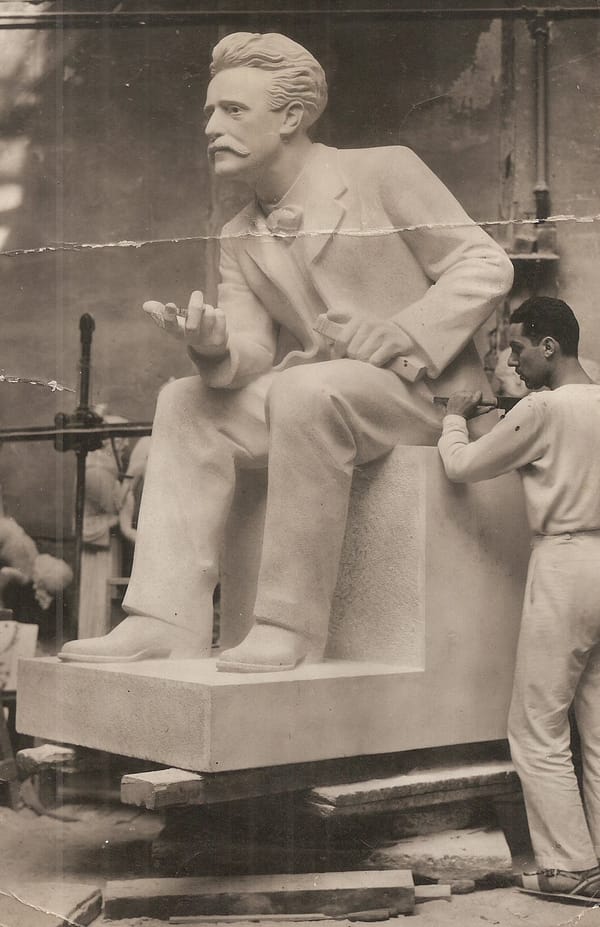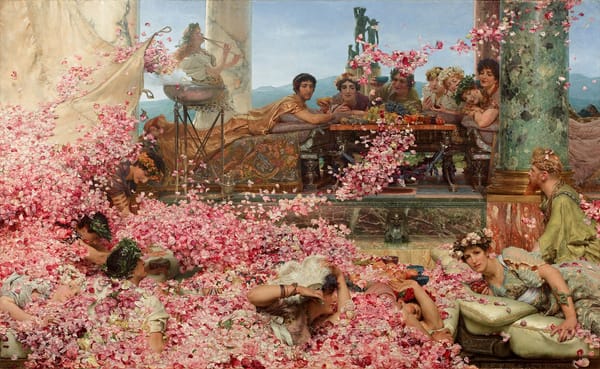How do you walk away from a dream? This ex-Spotify producer, ex-restaurateur finds out (again)
In 2021, Tiara Darnell, a producer at Spotify, relocated to Mexico City. She soon opened its first Black soul food restaurant, the diaspora-connecting and now-closed Blaxicocina. We set the table at this intersection, discussing everything from “overnomadism” to burnout and finding new purpose.
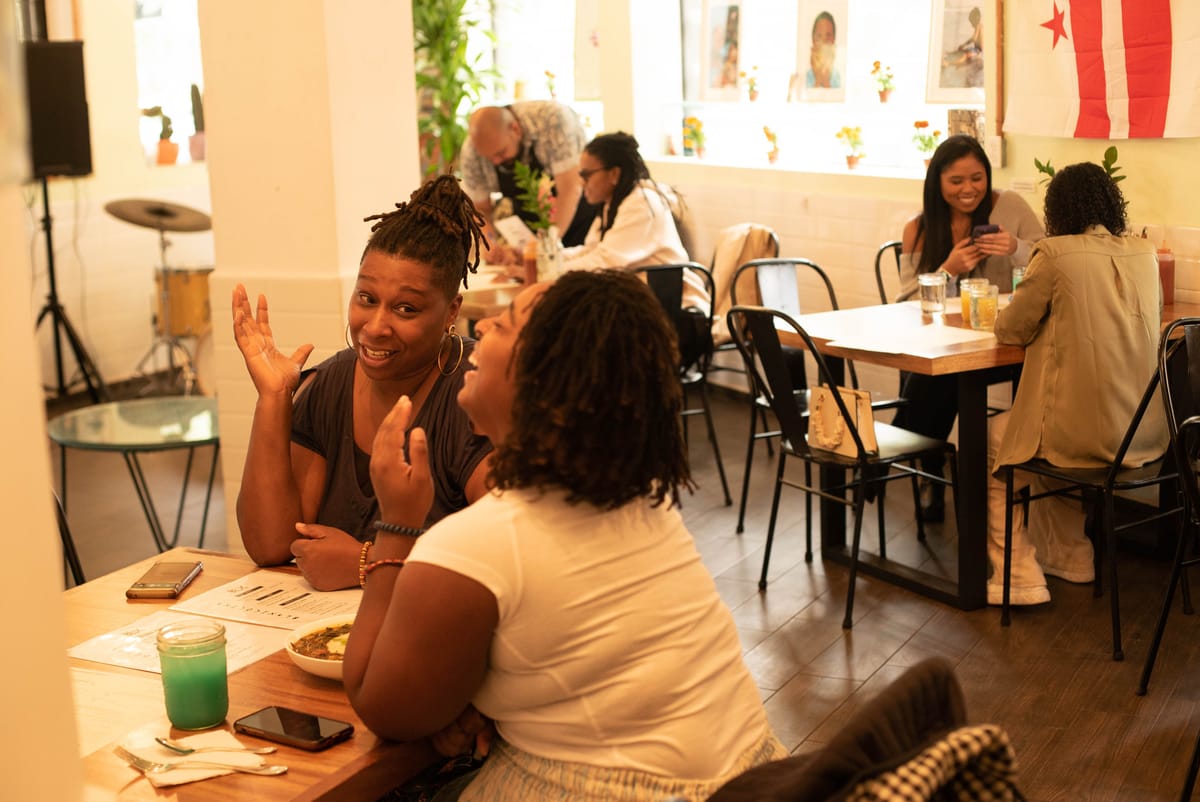
On Friday, ESC KEY .CO’s inaugural Power Lunchee Tiara Darnell wandered around a Brazilian city with a few new friends. Thirsty, she paused at a cart in a plaza when she heard it: “Ti... Tia... Blaxicocina!?” She turns to find two women she’d met at her restaurant in Mexico City, right as the couple were about to move somewhere and start their new life together. They were celebrating their anniversary in Brazil when Darnell realized, wow, people are recognizing me thousands of miles away.
A week or so ago in Rio de Janeiro, the same thing happened. Former customers who’d come to one of her Free Spaghetti Mondays spotted her at a patio bar. These moments of recognition, far from where she built her dream, remind her that what she created continues to resonate in unexpected ways, even after she’s moved on.
Having already lived what many would consider several dream lives, Darnell finds herself at 36 asking: “What are the things you wanted when you were unencumbered and the world hadn't completely jaded you yet? Have you actually accomplished those things, or did they get buried somewhere along the way?”
The former Spotify producer left the United States in 2021, settling in Mexico City where she opened Blaxicocina — the city's first Black American soul food restaurant, a venture that connected diasporic culinary histories and quickly gained local acclaim. In December, she made the difficult decision to close its doors.
When we lunch, Darnell is in what she initially described to me as “a place where nobody knows my name” — though that's proven less true than expected. She’s contemplating questions rarely discussed in aspirational entrepreneurial narratives: What happens when you achieve your childhood dreams — and then have to walk away? What comes next?
There’s only one rule to Power Lunch: we are granted the power to lunch anywhere in the world, but the Power Lunchee must pick only one place where we will virtually gather. This rule is now in effect.
🍴🍴🍴
You made it! Where in the world are you right now?
I’m in Belo Horizonte, Brazil, about five hours northwest of Rio de Janeiro. This is a highly underrated city — most foreigners thinking about Brazil aren’t thinking about this place. But this is actually the culinary capital of Brazil. They produce about a sixth of the world’s coffee here. The cachaça, that cane sugar spirit similar to rum, is produced here. They have amazing cheese products and a beer scene.
I feel like this city is like a mix of Washington, D.C. and Mexico City, but in a Brazilian context, with the food scene of Seattle. And the hills to go with it. You're working those glutes every single time you leave the house.
So basically you’ve earned lunch, working out for it.
Lunch and museum day. There are so many museums here too.
“What are the things you wanted when the world hadn’t completely jaded you yet?”
I don’t know about you, but I’m feeling a nice chatty lunch — the power of Power Lunch is that we can figuratively “go” anywhere! So, where do you want us to go?
I’ve thought hard about this question, and you’re going to laugh when you hear my answer.
When I really want to have a conversation with someone, I like to go somewhere where the menu isn’t too fussy. We can decide what we want and focus on the conversation because the food is already taken care of.
So, even though I’ve been to 33 countries and eaten some amazing food, I really want to take us both back to Portland, Oregon to Nong’s Khao Man Gai on Southeast Ankeny Street. Because that chicken and rice never misses. That broth just hits your palate and goes down your throat like a hug.
You took a really basic question and gave me a beautiful philosophy on how to choose a lunch spot. As you know well, I used to live near Nong’s in East Portland, and when I was moving out of my apartment before relocating to London, in the throes of the worst heartache of my life, I was hoarding Nong’s sauce. My mom flew out to help me pack. One of us dropped a bottle of sauce that splattered all over the floors. And for my last 48 hours in Portland, my apartment just smelled like Nong’s. It was kind of heaven.
That’s one of those smells that lingers for sure. I appreciate Nong’s even more now that I’ve had a restaurant. If I did this all again, I would just focus on one dish. She has perfected this one dish and made it something that’s craveable, that you want to come back for and unique in that you can’t really get it anywhere else.
That’s what I have to think about for next time — how do you make something that’s true to who you are but that people crave? That comforts them? With ingredients that keep the margins high? There’s so much alchemy that has to happen to make a restaurant work.
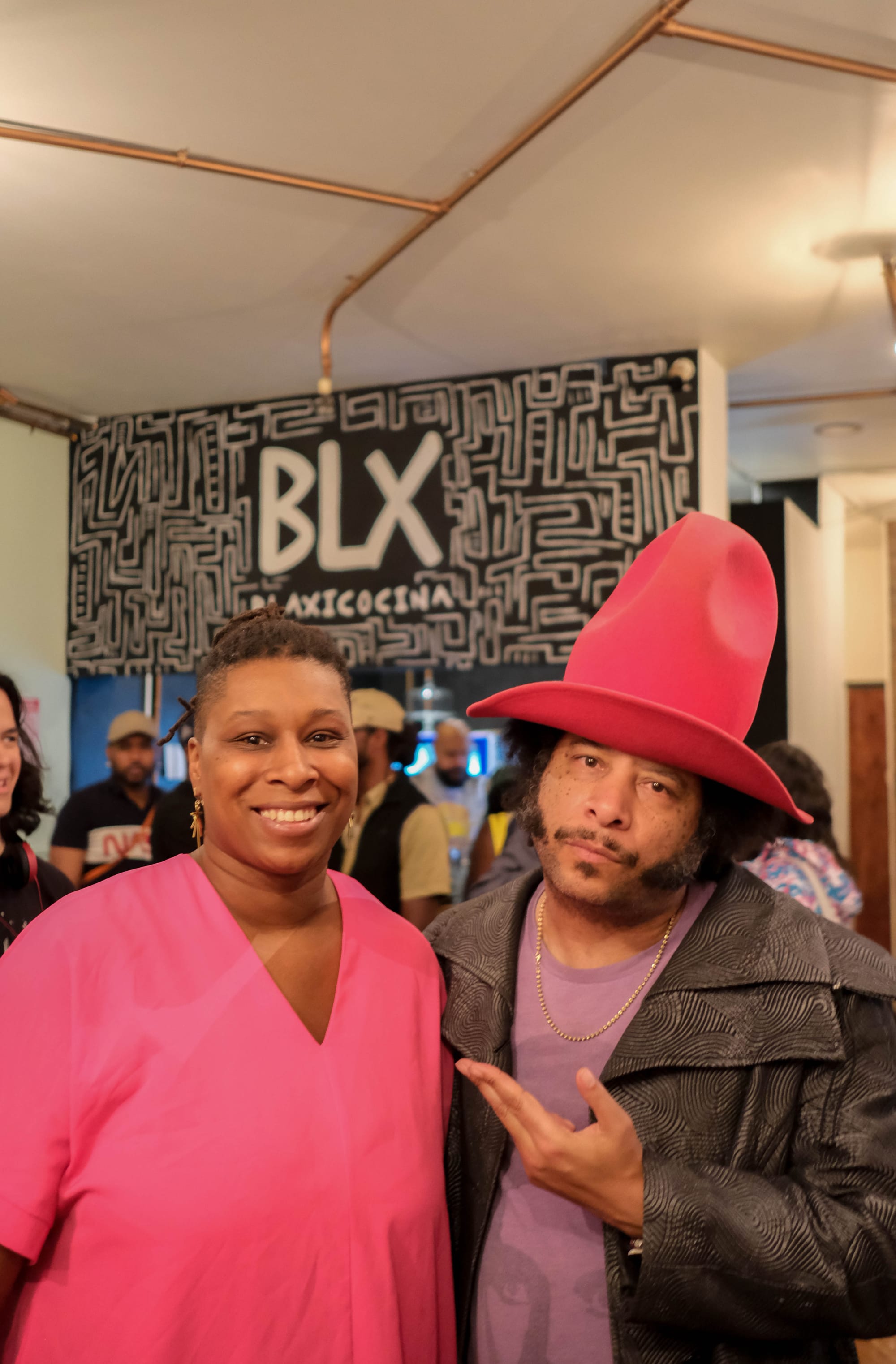
Let’s get our order in. What exactly are you getting?
The piset chicken and rice. All dark meat, extra cilantro, extra sauce. And another order to go, because I’m definitely going to want some more later. Oh and the coconut milk soft-serve with toasted coconut flakes on top. Extra coconut flakes.
I mean, dream lunch. Now that we’ve ordered, what’s going on with you right now? What’s new?
I’ve been in Brazil since January 1st. My birthday was January 3rd — I turned 36 and just wanted to be somewhere completely different. A place where nobody knows my name.
I decided on Brazil because it’s always been on my list, and I have this feeling that when you don’t take opportunities while you have them, they take much longer to come around again.
“I realized how much more relaxed and at ease I felt living outside the U.S.”
On the topic of taking opportunities, in the last four years, you’ve lived out a few dreams that many people spend their lives thinking about but never take the leap on. First, in 2021, you relocated to Mexico as a remote worker. What made you want to leave America then?
I lived abroad for two years in the Peace Corps in Morocco, and I realized how much more relaxed and at ease I felt living outside the U.S. I actually appreciated the U.S. more not being in it.
I kind of forgot about that feeling because I came back and got caught up in the rat race — working in wine and cannabis in Oregon, doing two master’s degrees simultaneously, trying to become a journalist and get a job at a place that I ultimately realized didn’t see my value and would never hire me.
Then I moved for love to Buffalo. The pandemic happened, and I got hired by Spotify in August 2020. I finally had a salary again but I wasn’t happy in western New York. My relationship was ending in a beautiful way, thankfully, and that’s when I decided to go to Mexico.
I took a leap of faith and just went. I’m glad I did because nine months later I got laid off — me and my entire team, and our division closed.
It was disappointing because I loved working there and I really felt like I was a way more effective employee because I was so fulfilled in my personal life that it spilled over into my work life in the best way. I wasn’t living in the monotony of pandemic-era Portland or Buffalo, struggling to pay rent and take care of myself in the expensive U.S., and it brought so much more color to every other aspect of my life.
My dream job ended, but my dream life had really just begun. I decided to stay in Mexico because I was already happy with my life there.
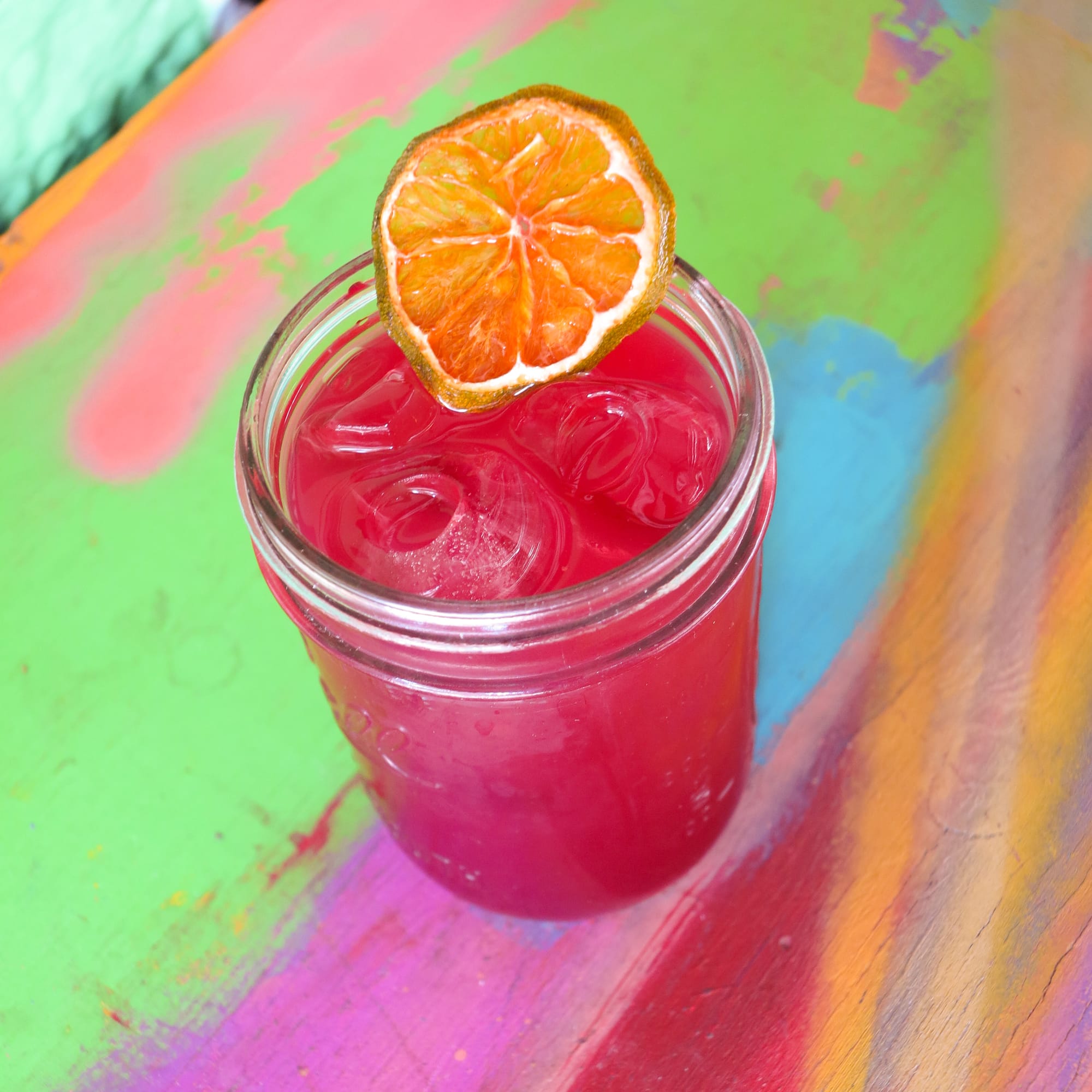
You ultimately got residency and then opened a restaurant. What about Mexico City wooed you?
Mexico City wasn’t on a lot of people’s radars before the pandemic. I always thought of Mexico as sort of a party place, but when I got there — to be in a city that big but so green, with so many cool restaurants and museums, friendly people, and the ability to fly to the beach in under two hours. It just had a lot to offer.
I felt at home there quickly. My Spanish improved, and it just felt like an easy place to slip into. It’s still North America, and we’re still North American. Mexico just really felt like a place that I could be and be happy.
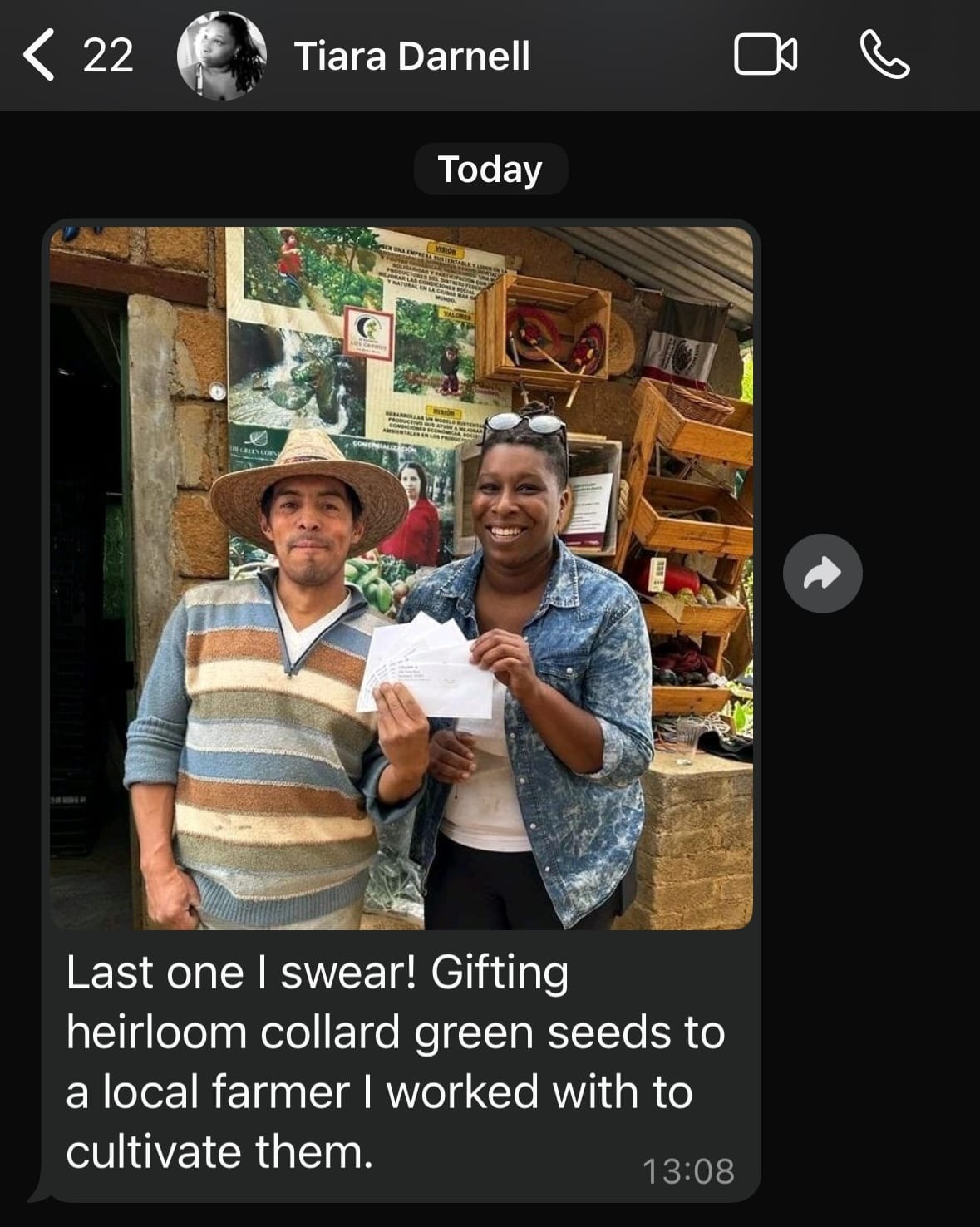
Now, it sounds like there are so many Americans in Mexico City right now. How has this surging growth of remote workers and “digital nomads” there — dare we say, “overnomadism” — changed the vibe?
The sentiments around gentrification that were there when I arrived have snowballed and have been exacerbated by U.S. politics right now. A friend was telling me that in her neighborhood the vibe has changed. She has noticed that locals don’t speak to her as much on the street or say good morning the same way anymore. That’s sad because that aspect of the community fabric is one of the things I love most about living there. I hope this is just temporary. ¡Te quiero mucho, CDMX!
And the vibe within the Black community has changed, too. It used to be so warm and intimate and we were all so glad to have “escaped” and found each other, a family abroad. But like any family, it’s not perfect. There’s this level of privilege that we experience. We’re not immigrants like “my life has been so hard that I will risk everything to come to this country for a better life.” People from Central America, parts of South America, the Caribbean — they’re fleeing real hardships. We just flew here from L.A. or New York and could go back anytime.
To be a Black American in Mexico is to breathe new energy into your life. It feels good to be somewhere where your humanity is acknowledged and you can just be at ease and exist, relatively unburdened, in a way that doesn’t really happen in the U.S. But it’s something I feel deeply conflicted about — we’ve built something special over these last few years especially, but like any immigrant community, we’re making our own bubble.
Some people try to incorporate locals into their projects and events, but there’s only so much you can do when you’re not even trying to seriously engage with the local culture. You stick to your same foreigner-saturated areas of town, you’re only able to truly engage with people who speak English and you’re creating spaces or experiences that feel imported from the U.S. and contribute to the erasure of culture and way of life many locals are upset about as the inevitable wave of gentrification swallows everything that made so many fall in love with the city in the first place. But then again, it’s other wealthier locals that are enabling this situation because they’re getting paid, they’re benefitting.
“To be a Black American in Mexico is to breathe new energy into your life.”
I feel like I want to print that out and mail it to every travel editor in New York and London. That fact seems so obvious when you visit a place, but travel media rarely thinks about that privilege.
I would love to write about that — this idea that some Black people have that they can’t be colonizers. We may not be able to actually colonize, but we absolutely can unknowingly and perhaps, unintentionally, behave like our colonizers in spaces where we benefit from some perceived sense of superiority we’ve never really felt back home. It’s been in me to write about that, but I’m not sure if folks are ready for that conversation.
Travel might make you feel good; it’s a happy thing. But there are real consequences to this, like what Bad Bunny’s been talking about with Puerto Rico. The vacationers and property hunters are one thing, the people who are coming to live and be in these places indefinitely, taking from the local community instead of taking part in what already exists in a thoughtful and respectful way, they’re leaving a big footprint as well.
That perspective on the “expat” impact is so valuable. Given your awareness of these dynamics, I’m curious about your own journey within this space. Let’s talk about one big dream you achieved. What made you want to open a restaurant?
So, speaking of building things with intention, there’s this history that people don’t talk about — many escaped or formerly enslaved Black Americans didn’t all go north in the U.S. or to Canada. For some in Texas, Louisiana and nearby states, it made more sense to come to Mexico, where slavery had been abolished several decades before the U.S. did it.
It’s known as the Southern Underground Railroad and that story is little-known. When I read about this history, I realized connections between Black Americans and Mexican people that goes back generations. The pandemic allowed more of us the opportunity to move abroad, and I was seeing the growth of the Black American community in Mexico City and realized there was no soul food restaurant. Since both of our cultures love to eat, food could be an excellent way to share this story and to begin to build bridges between us with all this modern day migration going on.
I wanted to share this food — family recipes and tried-and-true soul food recipes remixed with Mexican street food influences. And welcome and love on people by nourishing them while honoring our shared histories. That’s in the name, Blaxicocina, a mashup of “Black Mexican Cocina” which means “kitchen” in Spanish.
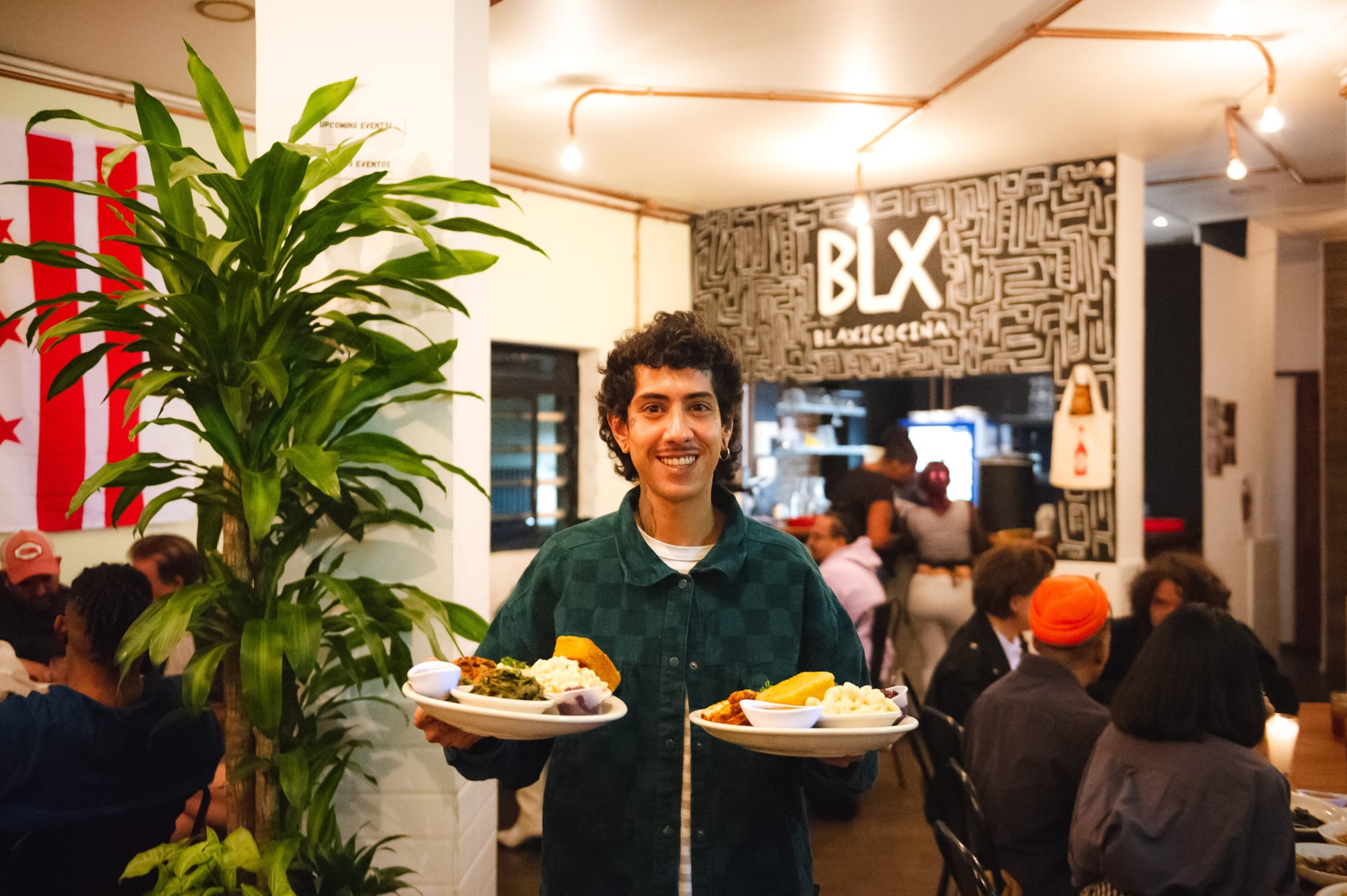
What did you learn in the process?
This idea that entrepreneurship means escaping the nine-to-five is so far from the reality. You’re actually trading your nine-to-five for a twenty-four-seven schedule.
The difference between working with creatives versus business people was also a hard lesson I learned repeatedly. Just because you work for yourself as a freelance creative doesn’t mean you know how to run a business with employees, local regulations, quarterly taxes — there’s levels to it.
When it comes to working or collaborating with friends, the best advice I can give is just don’t, especially if you truly value the friendship. But, if you do, make a contract.
To some, contracts seem like this big, daunting thing that’s unnecessary if you’re working with someone you trust. No, they’re actually one of the most compassionate things you can do if you both really want the thing to work. Resentment is cancerous. Things can still go sideways even with a contract, but it’s less likely because you’ve taken the time to think through the “what ifs.”
“This idea that entrepreneurship means escaping the 9-to-5 is so far from the reality. It's 24/7.”
When you’re doing something like a restaurant, it really sucks everything out of you. It’s not like you just shut it off. Even when you're away, it’s something you’re always thinking about.
And speaking to two different audiences — English speakers from the U.S. and Mexicans and other Latin American folks. When I started, most of my customers were Black Americans. By the end, it was probably 80/20 — Mexicans and Latin Americans to Americans from the U.S. and I’m so proud of that. As a business owner, you quickly learn that you cannot rely solely on one audience, especially when one is transient. Figuring out how to navigate that occupied a lot of my mental space.
As far as non-gringos were concerned, it was one of the highlights of my life to introduce people to something new by connecting it to what was already familiar to them, like talking about grits to folks who are used to nixtamalized corn in the form of tortillas, et cetera. I loved those moments, and the relationships especially through music with vinyl-heads from countries with large Black populations in other parts of the Americas. This is why Blaxicocina was so much more than just a restaurant.
But running it was extremely exhausting, especially dealing with crumbling infrastructure and an indifferent landlord. There are so many moving parts and things that need to be managed and without an operationally experienced team, my own shortcomings as someone who had never done something like this before, and zero investors to be able to hire the sage operational help we needed.
I just realized after two years of grinding I couldn’t keep doing it all. Burnout was ultimately a big reason for me closing.
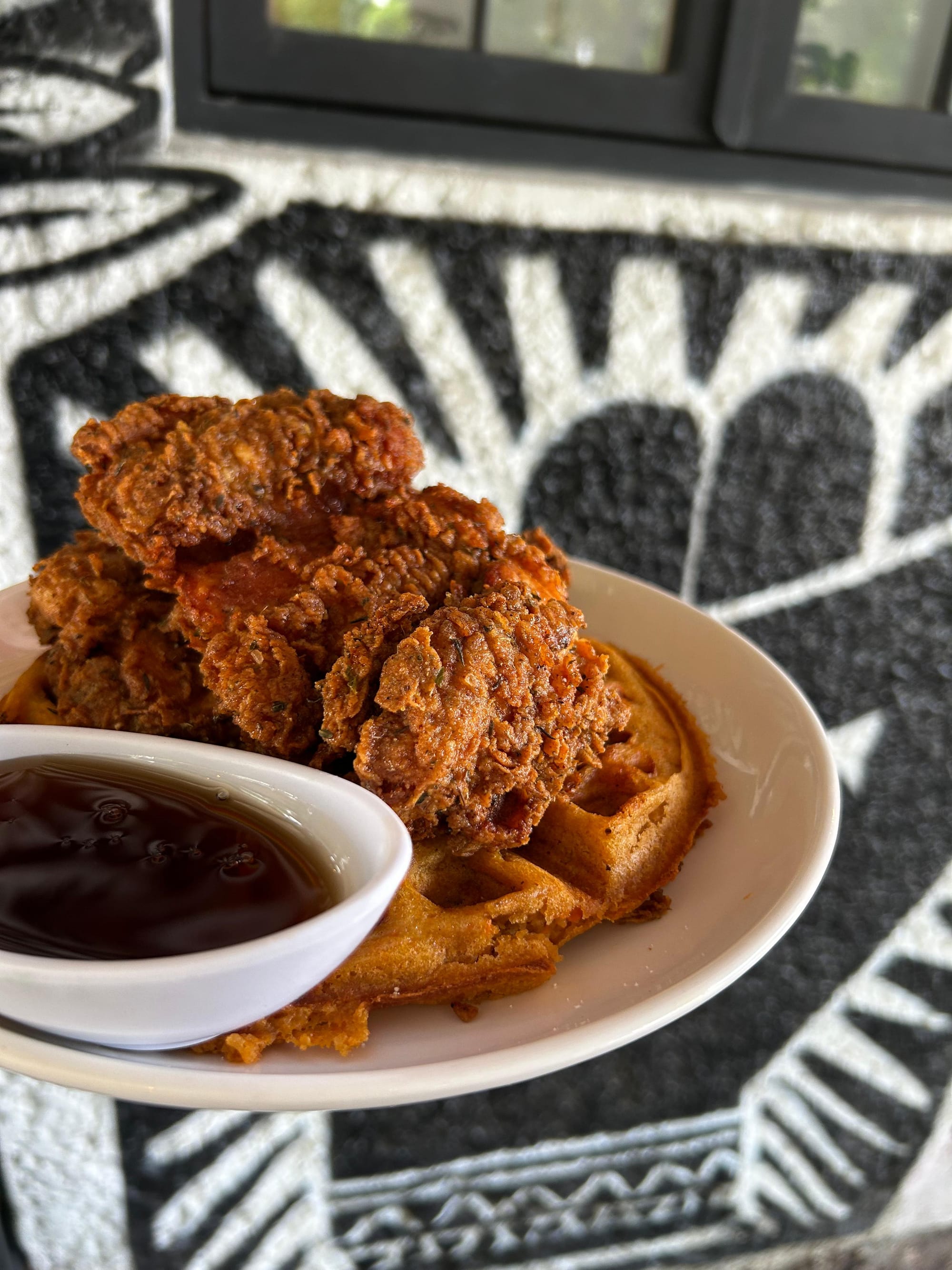
You’ve described this period as achieving a dream and ultimately having to walk away from it. What has that transition been like?
I think about all the dreams I had as a teenager — what are the things you wanted when you were unencumbered and the world hadn't completely jaded you yet? Have you actually accomplished those things, or did they get buried somewhere along the way?
I wanted to travel and see the world. I always wanted to be a chef and maybe have my own restaurant. I didn’t pursue it initially because I grew up in D.C. where everyone works for the government. I decided I wanted to be a diplomat.
I fell in love with Cuban music when I was 16, which completely changed how I felt about learning Spanish. I fell in love with Latin America and wanted to live anywhere there. I wasn’t a diplomat for the State Department, but through my love of cooking, food and my restaurant, I got to be a chef, open my own spot, and live in one of the most captivating countries in Latin America. Now I’m in Brazil learning Portuguese — another dream I always wanted to pursue — and I can’t help but think about possibilities here given how connected this country is to its African heritage.
I’ve checked off the things I wanted for myself as a teenager, and it’s as gratifying as it is scary to be like, “I did that. Now what?” That’s what I’ve been reflecting on as I seek a new purpose.
“It’s important to recognize it for what it was, not what I wished it could have been.”
You’ve achieved something remarkable with the restaurant, even though you ultimately had to close it. Was there a moment that really captured the emotional reality of that experience for you?
The day I announced the restaurant was closing, Marshawn Lynch, the former NFL player, came in for dinner. That’s huge — having a celebrity take note of your place and then actually show up. Regrettably, I completely bungled his order.
We were understaffed that day and he came with a bunch of folks. I took his table’s order myself, then went and cooked all their food. Everything came out as fast as I could do it and I was so proud of myself until I realized that I somehow forgot his wings. When I came out to say hi, they were already leaving. What should have been a huge accomplishment just reflected how tired and exhausted I was after telling everyone the restaurant was closing in two weeks. It was one of those moments where I did my best and it wasn’t enough, and it was super clear it was time to take a long rest.
The restaurant was beautiful. I’m proud of what I accomplished. It’s important to recognize it for what it was, not what I wished it could have been. No one would have given me money in the beginning — a Black American woman with no restaurant experience, fluent in Spanish but with no experience in Mexico, wanting to open in one of the biggest food cities in the world? I did it on my own, putting everything I had into it because I believed in it. I don’t regret it.
Now all I have is what I got from selling a few refrigerators. I don’t know what comes next — I think I want to go into restaurant consulting and continuing to develop culturally-inspired curated experiences.
But I know as far as Blaxicocina, I gave it everything. I’m not sure if Mexico City is still for me or not, and if it isn’t, I might have to start over somewhere else. But that doesn’t scare me. I just want to keep living the Latin American dream life that my 13-year-old self wanted.
🍴🍴🍴
Dessert is always a good idea, right?
Well, I was gonna get that second order of Nong’s to go, for sure, but not before soft serve! So, I think that’s dessert. Get as many of those coconut flakes as possible.



